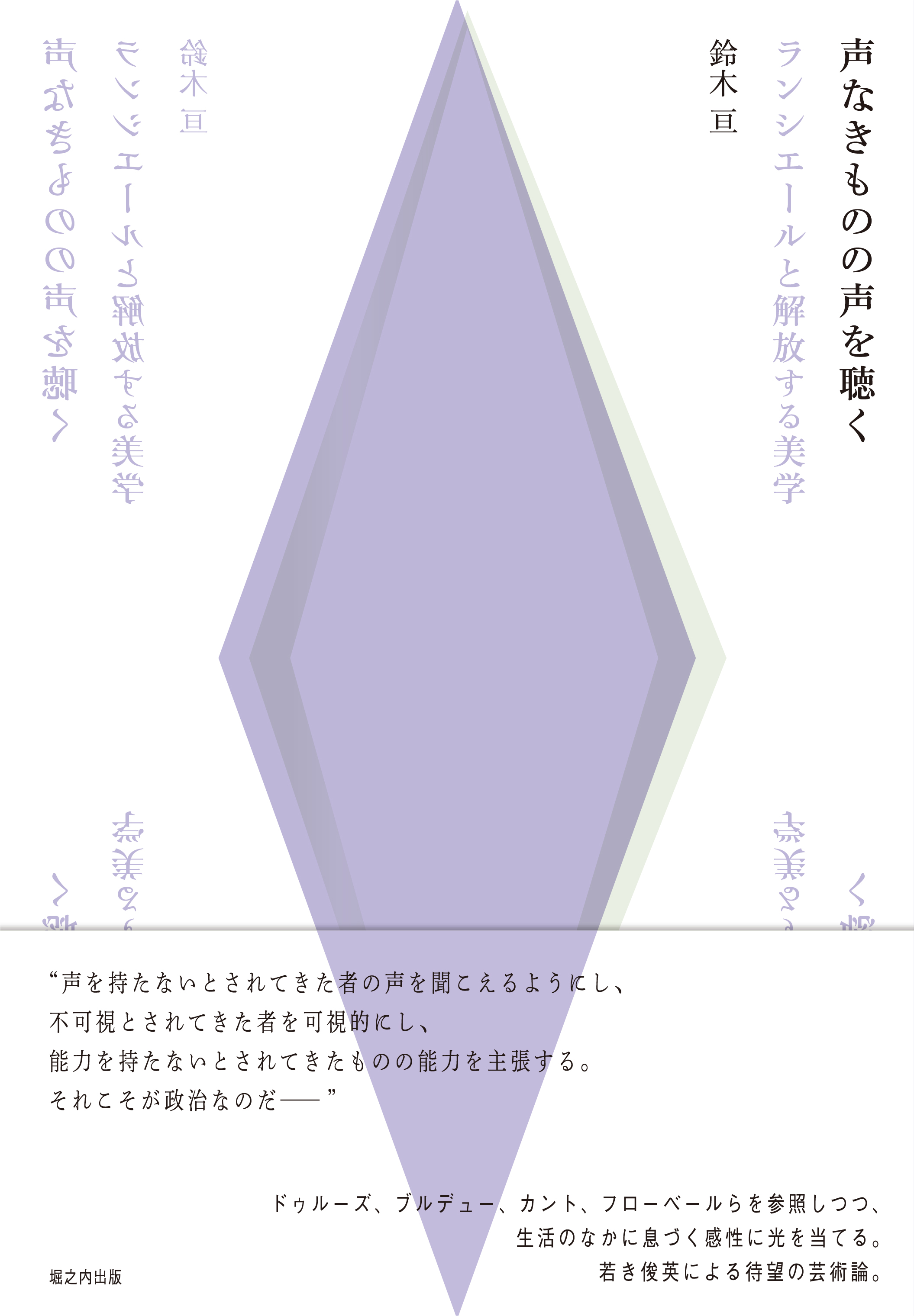
Title
Koe naki mono no Koe wo kiku (Listening to the Voice of the Voiceless - Jacques Rancière and the Aesthetics of Emancipation)
Size
336 pages, 127x188mm, hardcover
Language
Japanese
Released
April 03, 2024
ISBN
978-4-909237-94-1
Published by
Horinouchi Publishing
Book Info
See Book Availability at Library
Japanese Page
As the subtitle indicates, this book is about the aesthetics and philosophy of art espoused by the French philosopher, Jacques Rancière (1940-). The term “aesthetics” (l’esthéthique) generally refers to the philosophical study of beauty, art, and sensibilities. This book, however, emulates Rancière in focusing on the fundamental transformation in 18th century Europe—where the concept of aesthetics was established—of the framework by which the arts were defined and evaluated. Specifically, Rancière presents a historical perspective in which the various conventions that had once governed art were dismantled and all things came to be equally regarded as art. The “Emancipation” in the subtitle refers to this (and is primarily covered in Chapter 1).
“Emancipation” also has political connotations. Rancière referred to the above state of affairs as an “aesthetic revolution” in contrast to the citizen revolutions that were occurring at the same time, revolutions that dismantled conventional hierarchies and called for freedom and equality for all people regardless of status. Not only did he contrast the two kinds of revolutions, but he also asserted that there was a deep connection between revolutions in aesthetics and revolutions in politics. What does this mean? According to Rancière, freedom and equality are first and foremost proclaimed by human sensibilities. In other words, he found in the aesthetics of Immanuel Kant and Friedrich von Schiller, the revolutionary declaration that every human being, regardless of status, has equal access to aesthetic experiences by which they can achieve a sense of freedom (covered in chapters 2 and 4). In both political and artistic spheres, the aesthetic revolution makes visible that which was considered invisible, gives a place to those who have no place, and makes audible the voices of those who were considered voiceless—in a reconfiguration of the framework of sensibilities. This is expressed in the title of this book.
This book attempts to contrast these basic ideas of Rancière with those of his contemporaries, such as Jean-François Lyotard and Pierre Bourdieu, and to highlight the unique position of his ideas. Through this, we also seek to reveal the performative character of Rancière’s prose, that is, the practical effect his prose has in encouraging the reorganization of the framework of sensibilities. Additionally, this book aims to open other disciplines that promote the emancipation of marginalized beings to Rancière’s ideas (while also calling into question Rancière’s somewhat naive use of the concept of “human”).
It is hoped that this book will awaken you to the political significance of the act of reading itself.
(Written by: SUZUKI Wataru / May 27, 2024)
Related Info
The 4th UTokyo Jiritsu Award for Early Career Academics (The University of Tokyo 2023)
https://www.u-tokyo.ac.jp/ja/research/systems-data/n03_kankojosei.html



